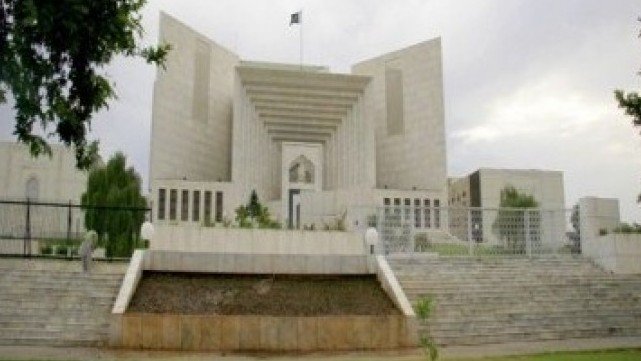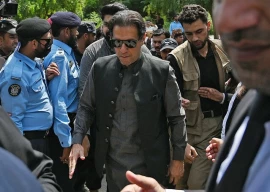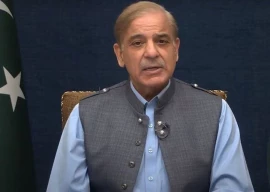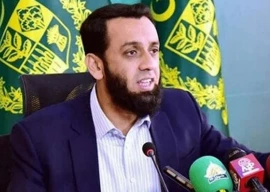
During the course of hearing of 16 identical petitions challenging certain parts of the piece of legislation, Justice Ramday asked, rhetorically, who would be responsible if the system itself commits suicide.
Akram Sheikh, counsel for petitioner Nadeem Ahmed, submitted that the independence and autonomy of the judiciary has been undermined with the insertion of Article 175-A in the Constitution.
Justice Asif Saeed Khosa, while addressing Sheikh, observed that it is not enough to say that the appointment of judges through Judicial Commission would destroy the independence of judiciary “therefore you should give arguments on the merit of Article 175-A”.
Justice Iftikhar Muhammad Chaudhry observed that the judiciary never claimed to be above the Constitution and the points raised by the judges of this bench “including me”, are their personal opinions. However, the case would be decided on merit.
How the judiciary was stopped in Article (6-2,A) from validating the high treason act despite the fact that the judiciary has already declared in its verdict of July 31, that the judiciary will not validate the acts of a dictator in the future, which forms part of the judges oath, the CJ observed.
Strengthening democracy is the ultimate desire of the judiciary and to bring a change in the judges’ oath was merely to let democracy flourish in the country, Chief Justice Iftikhar Chaudhry remarked.
Justice Khawaja observed that the judiciary itself ruled that whoever will validate unconstitutional steps would be guilty of high treason and that this has happened for the first time in the country’s history. “First on November 3, a seven-member bench declared the promulgation of emergency null and void, and then clarified it in the PCO judges’ case then why was the need felt to insert this article in the Constitution?”.
This is the reward of the judiciary for its sacrifice, observed Justice Ramday, its hands have been cut. He added: “We were made prisoners; we suffered starvation and unemployment for this system, for this democracy, for this nation and the country”.
He further said that now no-one is following the SC decisions and it had to beg for decisions to be implemented. “We direct the appointment of someone for an independent and impartial investigation, but no one is listening to us.”
“We have provided several safeguards to the system so that no one could dare destroy it; but if the system itself commits suicide who will be responsible?” Justice Ramday asked rhetorically.
“What was the logic behind including Article 175-A in the 18th Amendment although our decisions were before the parliamentary committee,” CJ Iftikhar Chaudhry observed.
Justice Saqib Nisar inquired from Sheikh whether the right of judicial review has been weakened with the inclusion of Article 175-A in the 18th Amendment, to which he replied: “If the judges and the judiciary would not be independent, then who will do the judicial review?”
“The parliament did not say that the judiciary does not have the right to judicial review,” the CJ observed, adding, “the petitioner and respondents are talking of the independence of the judiciary but their point of view is different.” To this, Akram said he is talking about Article 175-A.
Justice Saqib Nisar questioned that with three judges of the Supreme Court, Attorney-General and law minster included in the Judicial Commission, how could the judiciary’s independence be undermined.
Akram said that two of the members of the Judicial Commission are from the outside. Thereupon, Justice Asif Saeed Khosa directed him to assist the bench to comprehend how the independence of the judiciary is being undermined.
Akram argued that, due to this legislation, the judiciary had been undermined as two members of the commission, who were essentially outsiders and uneducated about such matters, would be authorised to appoint judges of the superior courts.
Published in the Express Tribune, June, 3rd, 2010.



1725030039-0/Untitled-design-(2)1725030039-0-165x106.webp)
1725366721-0/kyle-(1)1725366721-0-165x106.webp)



1732696613-0/BeFunk_§_]__-(59)1732696613-0.jpg)
1732622842-0/Express-Tribune-(9)1732622842-0-270x192.webp)







COMMENTS (2)
Comments are moderated and generally will be posted if they are on-topic and not abusive.
For more information, please see our Comments FAQ